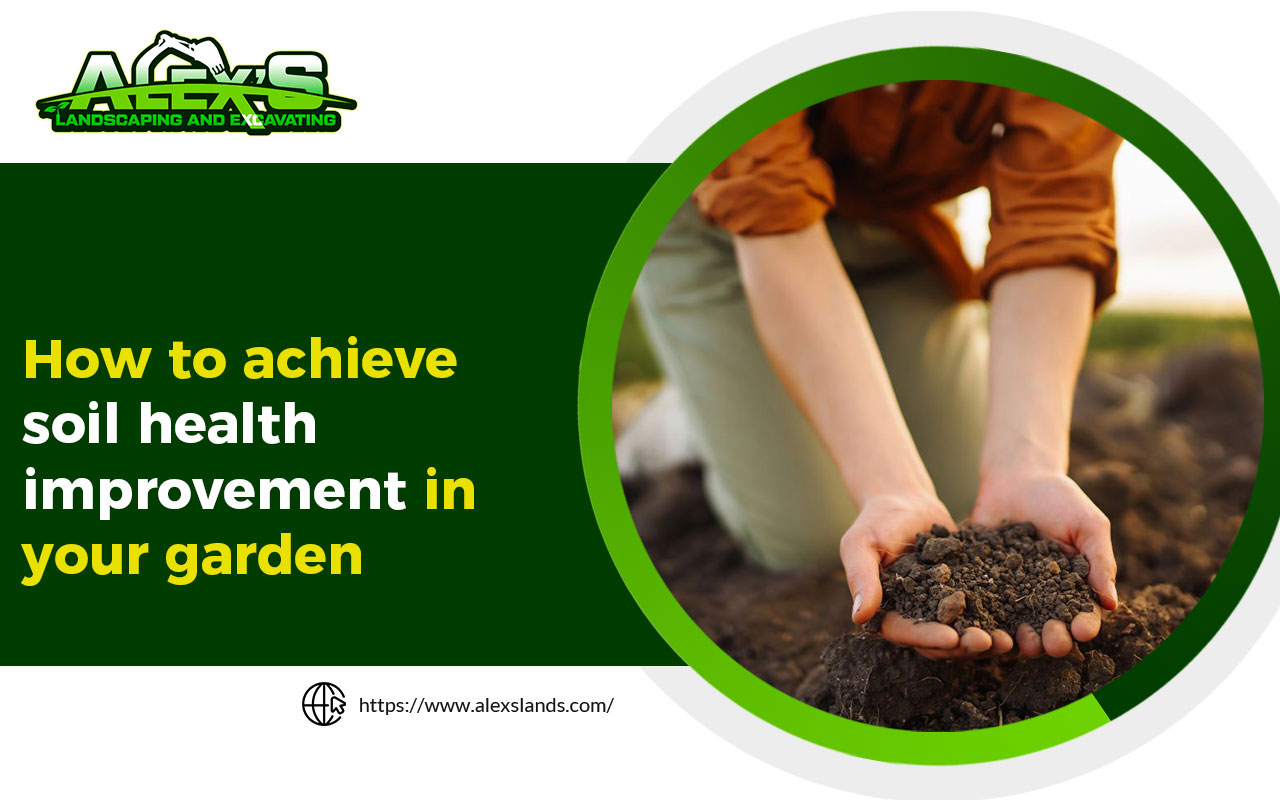
How to achieve soil health improvement in your garden
Healthy plants start with healthy soil, and soil health improvement is key to a thriving garden. Whether you’re a seasoned gardener or just starting out, understanding how to nurture your soil is essential. Have you ever wondered why some plants flourish while others struggle? In this post, we’ll explore simple strategies to boost soil health and ensure your garden thrives.
Understanding Soil Health
Soil health improvement is crucial for any garden. Healthy soil is full of life, supporting plants with the nutrients they need to grow. When soil is in good condition, it promotes strong root systems, enhances water retention, and resists pests and diseases. But how do you know if your soil is healthy? A simple test is to look for earthworms. Their presence indicates rich, fertile soil. Now, let’s dive into practical steps to enhance your soil’s health.
Adding Organic Matter

One of the best ways to improve soil health is by adding organic matter. Organic matter, like compost, enriches the soil with nutrients and improves its structure. Here’s how you can incorporate it:
- Compost: Regularly add compost to your garden beds. It improves soil texture and provides essential nutrients.
- Mulch: Use mulch to cover the soil. It helps retain moisture, suppress weeds, and gradually breaks down to feed the soil.
- Green Manure: Plant cover crops like clover or rye in the off-season. These plants add organic matter when tilled back into the soil.
Adding organic matter is a natural and effective way to boost soil fertility.
Improving Soil Structure
Good soil structure is essential for healthy plant growth. Soil that is too compact can restrict root growth and water absorption. Here are some tips for improving soil structure:
- Avoid Over-Tilling: Excessive tilling can break down soil structure and lead to compaction. Instead, gently loosen the soil before planting.
- Aerate the Soil: Use a garden fork to aerate the soil. This helps oxygen reach the roots and promotes healthy microbial activity.
- Add Sand or Perlite: If your soil is heavy clay, mix in sand or perlite to improve drainage and prevent waterlogging.
By focusing on soil structure, you create an environment where roots can thrive.
Balancing Soil pH

Soil pH plays a significant role in nutrient availability. Most plants prefer a slightly acidic to neutral pH (around 6.0 to 7.0). Here’s how to adjust your soil’s pH:
- Test Your Soil: Use a soil pH test kit to determine your soil’s pH level.
- Lime: If your soil is too acidic, add lime to raise the pH.
- Sulfur: If your soil is too alkaline, add sulfur to lower the pH.
Maintaining the right pH balance ensures that your plants can access the nutrients they need.
Encouraging Beneficial Microorganisms
Healthy soil is teeming with beneficial microorganisms that break down organic matter and make nutrients available to plants. Here’s how to encourage these microorganisms:
- Avoid Chemical Pesticides: Chemical pesticides can kill beneficial microorganisms. Opt for natural pest control methods instead.
- Add Compost Tea: Compost tea is a liquid made by steeping compost in water. It introduces beneficial bacteria and fungi to the soil.
- Rotate Crops: Crop rotation prevents the depletion of specific nutrients and reduces the buildup of pests and diseases.
Fostering a diverse microbial community is key to maintaining long-term soil health.
Avoiding Soil Erosion
Soil erosion can strip your garden of its fertile topsoil, leaving it barren. Here are some strategies to prevent erosion:
- Plant Ground Cover: Use ground cover plants to protect the soil from wind and water erosion.
- Build Terraces: On sloped areas, terraces can slow down water runoff and prevent soil loss.
- Use Windbreaks: Plant shrubs or trees to act as windbreaks, reducing the impact of strong winds on the soil.
Protecting your soil from erosion ensures that it remains rich and productive.
Start Improving Your Soil Today
Improving soil health is the foundation of a thriving garden. By adding organic matter, balancing pH, and encouraging beneficial microorganisms, you create the perfect environment for your plants to flourish. Ready to transform your garden? Contact us today for more tips and expert advice on soil health improvement.
